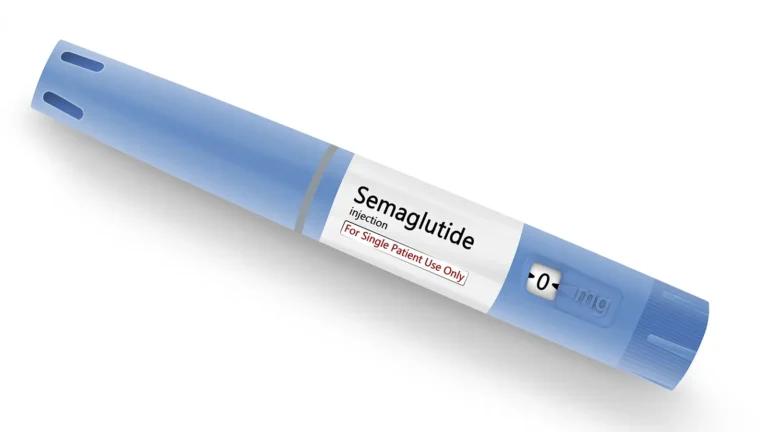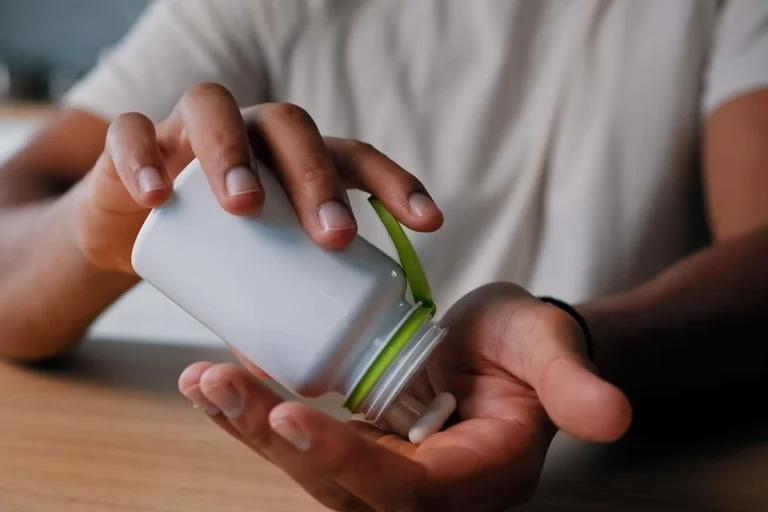
Glucagon-like peptide-1 (GLP-1) is a natural hormone used in the regulation of glucose levels and appetite. GLP-1 impacts significantly on weight loss and diabetes management, making GLP-1 agonists (mimics the actions of the GLP-1 hormone) a unique and important medication for the treatment of type 2 diabetes and obesity. Here, we will take a closer look at GLP-1 agonists, their mechanism of action and their therapeutic uses.
Understanding GLP-1 agonists
Glucagon-like peptide-1 receptor agonists, also known as GLP-1 receptor agonists or incretin mimetics, are used to manage blood glucose concentrations in individuals with Type 2 diabetes mellitus and for the treatment of obesity. GLP-1 receptor agonists mimic the action of naturally occurring GLP-1, which is produced in the small intestine.
GLP-1 plays a pivotal role in the metabolism of glucose by enhancing the secretion of insulin from the pancreas, preventing glucagon release, and slowing gastric emptying. Collectively this helps to control blood sugar spikes.
Definition and role in the body
GLP-1 agonists bind to GLP-1 receptors on cells to replicate the effects of natural GLP-1. This triggers the release of insulin, blocking glucagon secretion, and increasing satiety (the feeling of fullness after eating). These effects aid glycemic control and also contribute to body weight loss by reducing appetite and the consumption of food.
Comparison with natural GLP-1 hormone
Numerous clinical trials have been conducted between short-acting and long-acting GLP-1 analogs to gauge their safety, efficacy and tolerability. Natural GLP-1 is degraded quickly by the enzyme dipeptidyl peptidase-4 (DPP-4) in the body, while GLP-1 agonists are designed to be resistant to this degradation. Extending their action in this way enhances their effectiveness at reducing blood sugar levels and promoting beta-cell proliferation, which is vital for the production of insulin.
GLP-1 agonists for type 2 diabetes
Other types of medication for type 2 diabetes include, the go to medication, metformin. However, your healthcare provider may recommend a GLP-1 agonist if:
- Metformin isn’t helping to manage your type 2 diabetes
- It is not safe for you to take metformin
- You have an A1C higher than your target
- You have been unable to reach your A1C target within 3 months of treatment and you have additional medical conditions, such as atherosclerosis, heart failure or chronic kidney disease
Mechanism of action
Stimulation of insulin release
GLP-1 agonists enhance the insulin secretion in a glucose-dependent manner. When blood glucose levels increase, GLP-1 agonists stimulate the production of more insulin by the pancreatic beta cells, helping to lower blood sugar levels.
Suppression of glucagon production
GLP-1 agonists inhibit glucagon secretion from pancreatic alpha cells. This helps to reduce hepatic glucose production, aiding in the management of blood glucose levels.
Slowdown in gastric emptying
GLP-1 agonists reduce gut motility and delay gastric emptying. This slowdown in gastric emptying significantly affects the overall glucose-lowering effect of these drugs.
Impact on appetite and weight loss
GLP-1 agonists activate GLP-1 receptors in the brain, signalling the central nervous system to reduce appetite and enhance satiety. This feeling of fullness leads to a decrease in food intake and, consequently, weight loss.
Benefits and uses
Research has found that some GLP-1 and SGLT-2 inhibitors may lower the risk of cardiovascular events, such as heart failure, cardiovascular disease, stroke and kidney disease. Individuals taking these medications have seen an improvement in their blood pressure and cholesterol levels. It is not clear however, whether these benefits are from the weight loss or the drug.
Efficacy in type 2 diabetes management
GLP-1 receptor agonists have been shown to improve glucose homeostasis effectively. They are especially beneficial at reducing glycated hemoglobin (HbA1c) levels and fasting plasma glucose.
Common side effects and considerations
Typical side effects
GLP-1 receptor agonists may cause gastrointestinal side effects. These include nausea, vomiting, diarrhea, and constipation. Adverse effects are often more common at the start of treatment or after an increase in dosage. Other more serious side effects may include allergic reactions or the risk of hypoglycemia (low blood sugar levels).
Considerations before starting GLP-1 agonists
Before starting treatment with GLP-1 agonists, it is essential to check for conditions such as gastroparesis, as these drugs may increase gastric emptying issues. Patients with a history of pancreatitis were originally considered at risk, but clinical studies have not supported this increased risk. Consideration is still however advised if you have a personal or family history of medullary thyroid cancer or multiple endocrine neoplasia.
Recommended dietary changes
Individuals taking GLP-1s should consume foods such as eggs, rich in protein and fats that trigger the release of GLP-1; healthy fats found in nuts, avocados, and olive oil; and high-fiber whole grains like oats and quinoa.
Berries, legumes, and a variety of vegetables can also help enhance overall health outcomes. Avoid foods that cause rapid spikes in blood sugar, such as snacks filled with sugar, refined carbohydrates, or foods high in fat.
The role of physical activity
Regular physical activity enhances the effectiveness of GLP-1 medications. Moderate and high-intensity exercises can increase GLP-1 levels, which improves glycemic control and weight management. Engaging in aerobic and resistance training, can complement the benefits of GLP-1 agonists, leading to an improvement in overall health and sustained weight management.
List of GLP-1 agonists
GLP-1 agonists currently available include:
- Dulaglutide (Trulicity)
- Exenatide (Byetta)
- Exenatide extended-release (Bydureon)
- Liraglutide (Victoza)
- Lixisenatide (Adlyxin)
- Semaglutide subcutaneous injection (Ozempic, Wegovy)
- Semaglutide tablets (Rybelsus)
There is also a similar class of medications called dual GLP-1/GIP receptor agonists.
Conclusion
By mimicking the natural hormone GLP-1, GLP-1 receptor agonists offer a novel approach in diabetes care. The dual action of glycemic control and weight reduction, alongside their benefits in the management of other medical conditions, highlights the therapeutic benefits of GLP-1 agonists.
It’s important to remember to use lifestyle modifications, such as a balanced diet and regular physical activity to complement the pharmacological action of GLP-1s. Continuing research and patient care are central to optimizing treatment outcomes and enhancing quality of life for those affected.
Medical Disclaimer
NowPatient has taken all reasonable steps to ensure that all material is factually accurate, complete, and current. However, the knowledge and experience of a qualified healthcare professional should always be sought after instead of using the information on this page. Before taking any drug, you should always speak to your doctor or another qualified healthcare provider.
The information provided here about medications is subject to change and is not meant to include all uses, precautions, warnings, directions, drug interactions, allergic reactions, or negative effects. The absence of warnings or other information for a particular medication does not imply that the medication or medication combination is appropriate for all patients or for all possible purposes.











